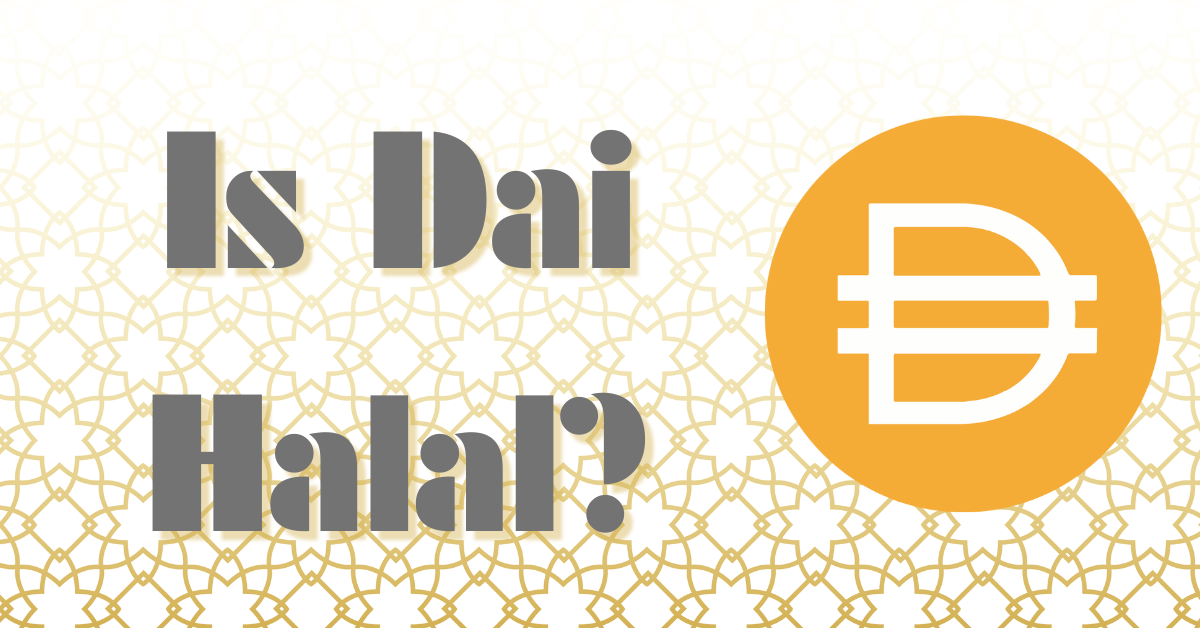Are you asking yourself is Dai halal? In the realm of cryptocurrencies, the question of whether a digital asset is halal has become increasingly important. One such asset is Dai, a stablecoin that has gained significant traction in the decentralized finance (DeFi) ecosystem. This article will explore the intricacies of Dai, its purpose, and its alignment with Islamic finance principles.

Table of Contents
Understanding Dai
What is Dai?
Dai is a decentralized stablecoin created by MakerDAO that aims to maintain a stable value of $1 USD. Unlike centralized stablecoins backed by fiat currency reserves, Dai is backed by other cryptocurrencies locked in smart contracts. This makes Dai a unique asset-backed stablecoin within the Ethereum ecosystem and other blockchain platforms.
Purpose and Utility
Dai’s primary purpose is to provide a stable medium of exchange and store of value within the crypto ecosystem. It achieves this through a system of smart contracts and collateralization. Users deposit cryptocurrency collateral into Maker Vaults to generate Dai. The protocol maintains price stability through automatic liquidations and dynamic stability fees, ensuring that Dai remains a reliable stablecoin.
Business Model
The business model of Dai revolves around users depositing cryptocurrency collateral into Maker Vaults. In return, users generate Dai, which can be used for various purposes within the DeFi ecosystem. The protocol’s automatic liquidations and dynamic stability fees help maintain the price stability of Dai, making it a critical component of the DeFi infrastructure.
Real-World Adoption
Dai has seen significant adoption within the DeFi ecosystem, with billions in circulation. It is widely integrated across decentralized exchanges, lending platforms, and payment systems. This widespread adoption underscores Dai’s importance as a stable medium of exchange and store of value in the crypto world.
Platform Development
MakerDAO maintains active development of the Dai protocol, with regular upgrades and improvements to its stability mechanisms. The project has a large community of developers and users, ensuring continuous enhancement and innovation.
Key Concerns from an Islamic Finance Perspective
Lending and Borrowing Mechanisms
The primary concern from an Islamic finance perspective is the lending and borrowing mechanisms within the Dai protocol. While the technical implementation differs from traditional lending, the economic substance appears to mirror interest-bearing debt, which is prohibited in Islam. This raises questions about the halal status of Dai.
Crypto Impact
To determine whether investing in Dai is halal, it is essential to assess its net positive or negative impact. This involves considering the positive and negative aspects of Dai, as outlined in the table below.
| Positive Considerations | Negative Considerations |
|---|---|
| Provides a stable medium of exchange | Lending and borrowing mechanisms may mirror interest-bearing debt |
| Widely adopted in the DeFi ecosystem | Economic substance may not align with Islamic finance principles |
| Backed by cryptocurrency collateral | Potential involvement in interest-based systems |
Expert Opinions and Community Insights
Shariah Assessment for Digital Assets
The Shariah assessment for digital assets provides a framework for evaluating the halal status of cryptocurrencies. According to this assessment, the economic substance of a digital asset is crucial in determining its permissibility. In the case of Dai, the lending and borrowing mechanisms raise concerns about its alignment with Islamic finance principles.
Community Contributions
Community members can contribute their insights to provide a comprehensive assessment of Dai’s halal status. This collaborative approach helps foster a deeper understanding of its compatibility with Islamic finance principles.
Comparative Analysis
Comparison with Other Stablecoins
To better understand Dai’s halal status, it is helpful to compare it with other stablecoins. The table below provides a comparison of Dai with other popular stablecoins.
| Stablecoin | Backing | Decentralization | Islamic Finance Concerns |
|---|---|---|---|
| Dai | Cryptocurrency collateral | Decentralized | Lending and borrowing mechanisms |
| Tether | Fiat currency reserves | Centralized | Centralized control and transparency issues |
| USDC | Fiat currency reserves | Centralized | Centralized control and transparency issues |
Comparison with Other DeFi Protocols
Comparing Dai with other DeFi protocols, such as Near Protocol and Hyperliquid, provides additional context. While these protocols have their unique features and concerns, the lending and borrowing mechanisms in Dai remain a significant point of differentiation.
Conclusion: Is Dai Halal?
The Answer for the question is Dai halal is complex and multifaceted. While Dai provides a stable medium of exchange and has achieved significant adoption within the DeFi ecosystem, its lending and borrowing mechanisms raise concerns from an Islamic finance perspective. The economic substance of these mechanisms appears to mirror interest-bearing debt, which is prohibited in Islam.
Your Contribution Matters
We encourage you to contribute your insights to provide a comprehensive assessment of Dai’s halal status and foster a deeper understanding of its compatibility with Islamic finance principles.
For further reading, you can explore the halal status of other cryptocurrencies and stay informed about the latest developments in the world of Islamic finance and cryptocurrencies.
Disclaimer: This article is intended for educational purposes only. If you need a fatwa for your specific situation, always consult a qualified Islamic scholar you trust. The purpose of this article is to broadly address the question: Is Dai halal? It should not be considered as religious or financial advice.

1 thought on “Is Dai Halal? A Comprehensive Guide to Understanding Its Compatibility with Islamic Finance”